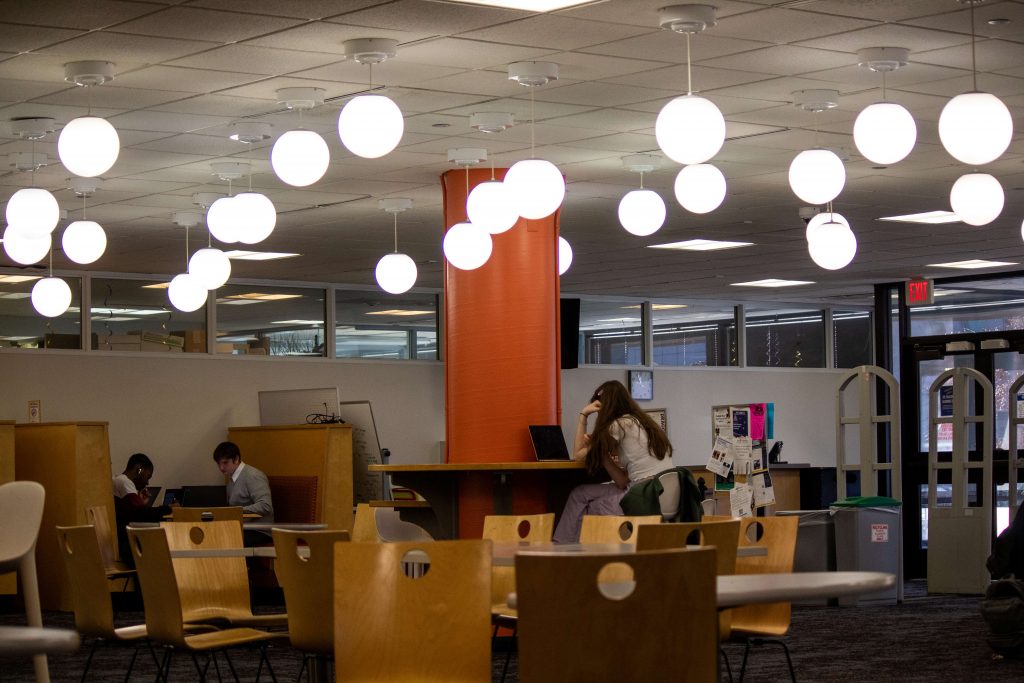
If you walked into the basement of the Creese Student Center on Jan. 16, 1978, you would have found the grand opening of the “Dragon’s Den.” With live music, free drinks, fries and burgers available in the renovated space, the new fast food restaurant was inaugurated in the building to accompany the preexisting bowling alley and game rooms.
Plans for the bowling alley began about 20 years prior. In Aug. 1959, the Triangle published an article titled, “Bowling Alley May Be Part Of New Student Building,” in which the plans for the “revenue producing service” were discussed. According to a DrexelNow article, the “$1.95 million building was officially dedicated at the end of September 1962.” In December of the same year, the bowling alley opened for all. Any student could rent a locker and the proper bowling shoes. The space brought together the men and women’s bowling teams, the average college student and even professors.
At the time, several other games were available as you perused the basement. Students could be found at one of the six billiard tables available to rent for $1 an hour or at one of the seven pinball machines. Other games such as ping pong, shuffleboard and pinball were also offered, as well as the basic sets of chess, checkers and cards.
The Dragon’s Den was introduced to the space to expand upon the existing cafeteria. Not only did it aim to solve overcrowding issues, but it planned to provide “a more ‘intimate’ atmosphere to dine in,” away from the “institutional atmosphere” of the rest of the campus, according to a Triangle article published in Oct. 1975. The informal area consisted of several tables and chairs to eat and socialize with friends at, as well as a jukebox that could be played for a nickel per song. After opening, the restaurant was known for its own “Dragon Burgers.” In a Triangle article published a year after the Dragon’s Den opening, it was revealed that Drexel’s take on the burger was cheaper than McDonald’s as it consisted of “1/3 of a lb of meat, compared to a McDonald’s 1/4-Pounder,” for $1.25. They also served crispy chicken, melts, fries, pretzels, shakes and a variety of other drinks. Inspired by a new $65,000 pub at the University of Pennsylvania and similar taps present at Temple University, the Dragon’s Den also served beer for age-appropriate patrons. Students could use their meal plan to pay for the food, as well as work there to help offset tuition.
In the spring term following its opening, an average of 600 people would be served in a single day. During exam seasons, the restaurant would also be open from 10 p.m. to 2 a.m. with free coffee, tea and soda available to those with a meal plan. Clubs on campus could also arrange events to be held in the space, including happy hours and comedy cabarets. During Nov. 1990, when weekday fraternity parties were banned on campus, the Dragon’s Den was home to an increased number of University-sponsored events meant for students to unwind and socialize, including a D.J. Dance Party.
While the idea of a restaurant and bowling alley all in one spot on campus sounds appealing to us now, it did have some faults. Students were frequently pushing for renovations, such as better lighting, and the color scheme was considered “atrocious,” with reds that “aren’t quite red” and “no honest-to-goodness blues,” as stated in a 1995 Triangle op-ed.
Another significant fault appeared in 1990, when the Dragon’s Den started making pizzas and introduced a pizza delivery service. By calling in, students provided their Social Security number to deduct the cost from their meal plan. Although advertised to arrive in a half an hour, it sometimes took three times as long to show up, if at all. The attempt may have been overly ambitious for a campus which then had just over 10,000 students.
While the remnants of the Dragon’s Den are no longer present, Creese is now home to the Triangle office, Drexel’s student run radio station WKDU and various clubs on campus.


